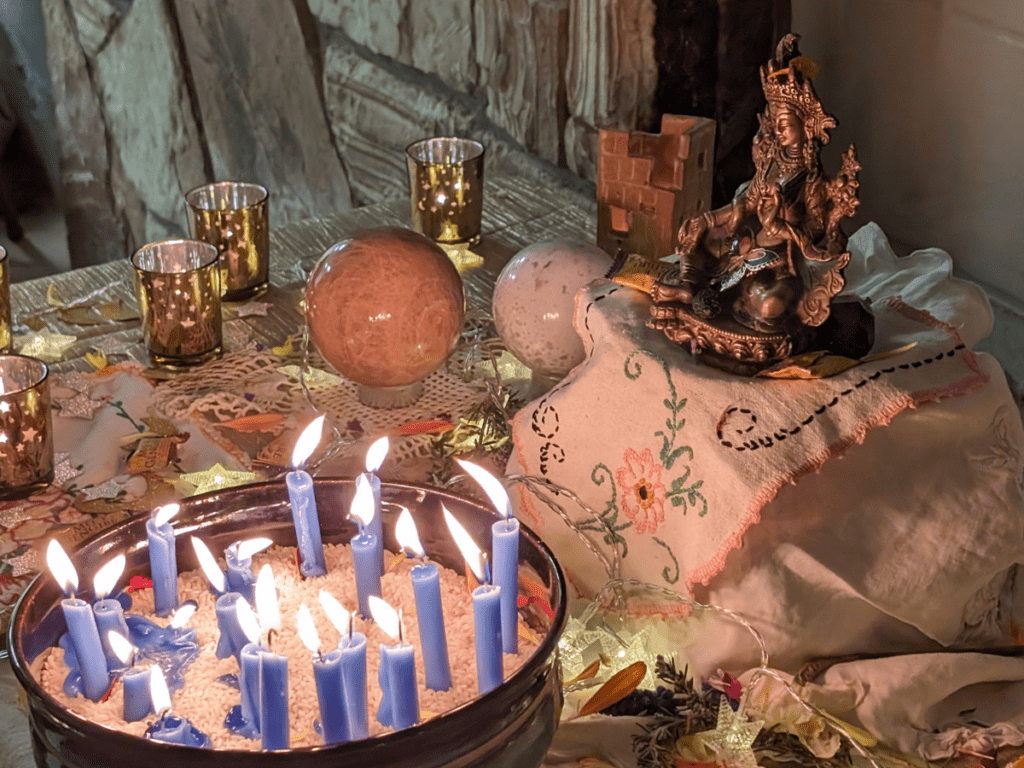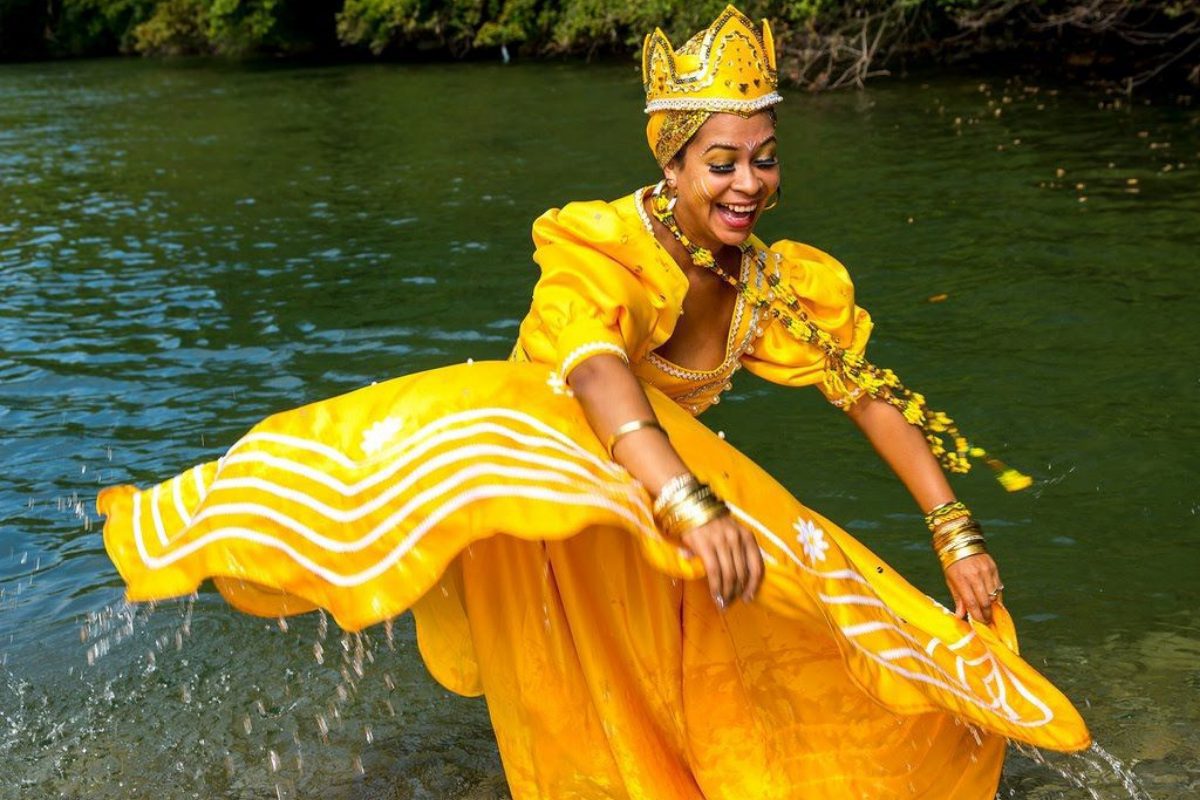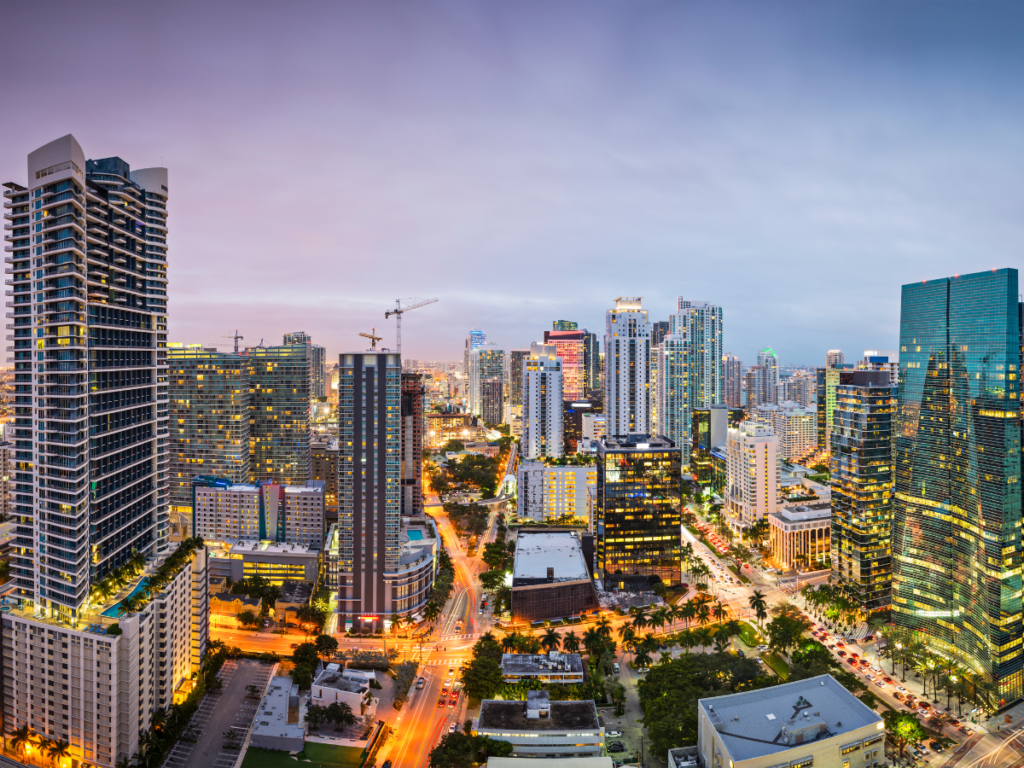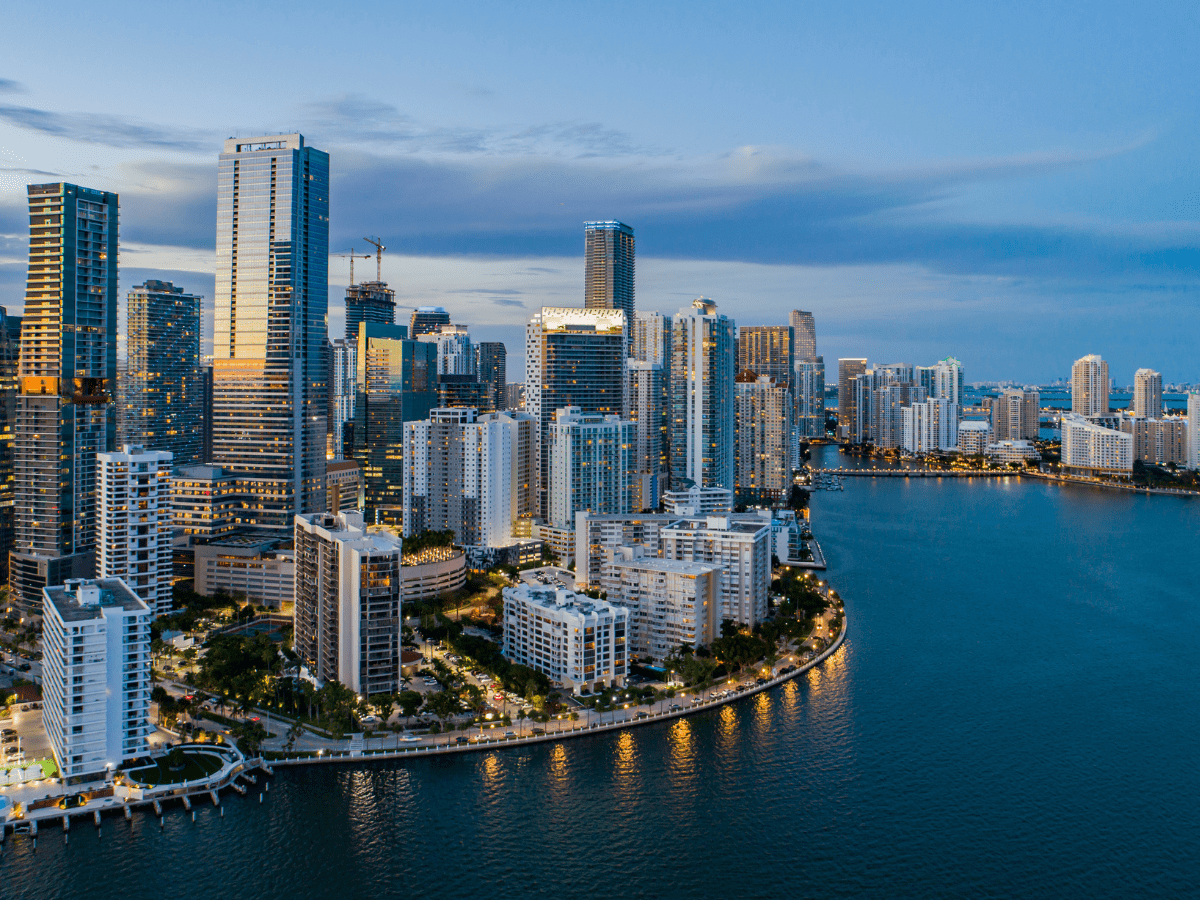I’m back in Melbourne, safe, sound, happy, over the jetlag, and reunited with my wonderful husband after spending about six weeks in the US. Spending time with my family, friends, and spiritual community was nourishing and enlightening. I returned to Melbourne with new information, lessons, and ideas to process and integrate, and I’m still working on that. Here are my reflections on the trip: the highs and lows of visiting Miami.
Pagan community

I’ve previously written about my experience attending the Mt Shasta Goddess Temple’s annual gathering of Priestesses and Sybils and Cosmogenetrix and the Georgian Wicca gathering. Those were beautiful, inspiring events. It was delightful to spend time in person with people I’ve only known online and friends I don’t regularly see. And I love the time before, in between, and after the official activities of Pagan events—the deep conversations, funny stories, and special moments during long car rides and late nights.
Spending time with my coven is always special. We moved our February dedication ritual to March and were all together in person, a rare treat. I also enjoyed leading our April Full Moon in person. One of the best parts was taking photos to capture the cat’s weird behaviour while everyone else closed their eyes during the meditation.
Lukumi

Being in Australia, there are simple Lukumi traditions that I don’t observe, such as visiting my godfather at the start of each year and getting a consultation (although these are offered online now in the post-pandemic world). I keep up with my private practice, but the last time I directly communicated with the orishas or participated in a ritual with Elders was in 2018 when I received Olokun, the orisha of the ocean depths. That was also the last time my orishas received sacrifices and the last time I received specific instructions.
Despite being concerned about what might be in store, I wanted a consultation during this trip. There’s a lot of catastrophising in Lukumi. This may be a side effect of feelings of disempowerment among Cubans and an aspect of the religion’s business that needs people to pay for products and services. So, it’s crucial to find knowledgeable and ethical practitioners.
I felt confused about my direction as if I were at a crossroads, and I had a reassuring reading with an excellent Oba Oriate. Ochun has always been the primary orisha to speak in my previous readings, and this was no different. My orishas are happy, and Oshun wants to see me happy, too. The Oba Oriate advised a few things to clear my fog and see the path more clearly: a rogacion de cabeza (a simple ritual to cleanse and fortify the head) and a couple of specific offerings to Eleggua.
My spirits are happy, too. The only request came from one of my spirits, a Gitana* cartomancer who wants me to work with her more. She wants a place on my altar, some special items, and for me to learn how to read the Spanish cards (I’ve known for years that I need to learn to read with this deck). The Oba Oriate affirmed that I am an espiritista and directed me to build my spiritist altar, which the Gitana wants to be on.
Espiritismo is a widespread practice in Latin America and the Caribbean that originated with the ideas of Spiritism defined by Allan Kardec. Each country has its unique flavour. In Cuba, European Spiritism is mixed with local African elements. Espiritismo is all about spirit work.
Elders have told me I’m an espiritista for at least 15 years. I have always resisted it, but I now feel ready to embrace espiritismo and have started building that altar. What about initiation in Ocha? The answer was the same as in previous years: not yet. I am to focus on developing as an espiritista.
I am relieved that the consultation was positive and that my orishas and spirits are happy with me.
Miami

When I last visited Miami in 2022, it had been four years. The pandemic had accelerated change in the city. Year-round sunshine, lax regulations, and low taxes lured venture capital investors, crypto evangelists, and other tech bros, turning a city of immigrants into the most expensive housing market in the United States. When I left Miami that summer, I wasn’t sure if the city was having a movement or a moment.
Since then, Miami has also seen an influx of Influencers, E-pimps, nepo babies, narco babies, and Venezuelan elites. The Sunshine State has the most overpriced market in the United States, with demand in Miami coming from wealthy non-Floridians and non-American investors. In 2023, researchers at Florida Atlantic University and two other schools reported that the average renter needs to make more than $100,000 to avoid being rent-burdened (spending 30% or more of their incomes on rent and therefore struggling to pay for other necessities). The wealthy transplants have also turned Miami into the fifth-worst city in the US for traffic and the ninth-worst in the world. These changes have altered the city’s landscape and social fabric, leaving many long-time residents feeling displaced and marginalised.
Florida’s right-wing politics are also leading to LGBTIQA+ communities feeling increasingly unsafe. For the first time, I heard friends talking about leaving Miami and even the state for economic or political reasons.
My niece and I went to lunch one weekday afternoon. I digress to say that every restaurant I went to for lunch or dinner served outstanding food–the best Cuban, fresh seafood, juicy burgers, good Mexican, delicious Indian, excellent Chinese, and the best lasagna of my life. When people say America doesn’t have good food, I don’t know where they’re eating.
So, we were just 1.3 kilometres (just under a mile) from the property my parents purchased in 1984 when I was seven years old and where I grew up. Yet, I did not recognise the neighbourhood. I didn’t know where I was.
This experience is not unusual for expats, but it was still disorienting. For the first time, I felt like Miami wasn’t my city anymore. A strange feeling of homelessness overcame me. And yet, I love Florida. That’s where many of my people are, and I love the beaches and the Everglades. It may be partly because when you’re there, it feels like these places don’t see much change (even though they do, both naturally and not, and they’re under constant threat of development). There’s a beauty and a stillness in those places.
*A note on the use of the word “Gitana”.
“Gitana” is the Spanish feminine word for “gypsy.” I’m aware that some Romani individuals find the term “gypsy” derogatory and prefer “Roma.” However, in Spanish-speaking communities, “Gitanos” is commonly used, including by Romani individuals within those regions. Using “Roma” is not universally understood by Spanish speakers. As a bilingual individual engaging with diverse cultures, I aim to communicate respectfully and also in a manner that I may be understood within cultural contexts.

